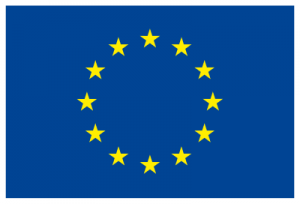Brief incite into the varied and fascinating work of the RICHES project, the topics considered within each research task and the events held to interact with interested stakeholders.
Read More →
This project has received funding from the European Union’s Seventh Framework Programme for research, technological development and demonstration under grant agreement n° 612789.
Dissemination Materials
D8.6 Project identity: booklet and logo
An overview of the design and definition of RICHES’ logo and a description of the project’s first dissemination materials.
Read More →D8.1 Website & Download Area
An overall description of the RICHES website, its sections, its technical infrastructures and its related services.
Read More →Digital libraries, collections, exhibitions and users. Exploring the status of digital heritage mediated by memory institutions
Digital technologies are deeply transforming the ways in which heritage institutions mediate their collections and interact with their audiences. Responding to a growing and persistent demand for digital content, institutions make available large amounts of curated digital resources for study and scholarly research, for discovery and creative reuse, for enjoyment, education and learning. This study explores the status of digital heritage mediated by libraries and museums by means of five case studies, in which the results of the research will be illustrated and validated through evaluation with end-users.
Read More →Food and Cultural Heritage in the urban age: the role of local food movements
Food has played a vital role in the formation of European cultural heritage. The production of food has shaped Europe’s rural landscapes, whilst spaces for buying and eating food shape cityscapes, ranging from distinctive restaurant quarters and local food markets, to anonymous peri-urban hypermarkets. Food is integral to everyday behaviours as well as moments of special celebration. It shapes individual and collective identities in a multitude of ways, symbolising nations and evoking individual memories of home.
Read More →Economics of Culture
Within the RICHES project we investigate fiscal and economic aspects of cultural consumption in the European Union. One of the available and yet underappreciated tools in cultural policy at the national level is the reduction of VAT rates for cultural goods and services. We explore the potential of fiscal incentives by introducing a theoretical model, which is then tested using data for all EU countries in the period of the last two decades.
Read More →RICHES Intellectual Property Rights strategy: the move from analogue to digital and new forms of IPR
The RICHES project addresses the challenges that digital cultural practices pose to existing copyright law and argues for new perspectives on IPR. RICHES is at the forefront of re-thinking the intersections between cultural heritage, copyright and human (cultural) rights in the digitised era. How should we re-think the IPR framework that supports our cultural heritage system in order to respond to the changing and challenging times?
Read More →Do you know what co-creation is?
In a dynamic European context, cultural heritage institutions are redefining their roles and indeed themselves. The challenges that institutions face today – technological innovation, sustainability, citizenship, lifelong learning and cultural diversity – are complex and almost always impact upon more than one domain. Traditional means of innovation do not always work anymore and instead new approaches emerge that involve end-users and professionals at all levels, to enable a collective imagining, building and experiencing of new futures.
Read More →RICHES Taxonomy, the foundation of the project’s research
The advent of digital technologies has brought new creative practices and transformed the Cultural Heritage’s traditional methods of preservation and promotion. As CH institutions and artists are rethinking and remaking themselves, shifting from traditional to renewed practices using new technologies and digital facilities, new meanings associated with terms such as “preservation”, “digital library”, “virtual performance” emerge every day. A variety of definitions of these CH-related concepts are shared and used interchangeably, making difficult the task of research and recognition.
Read More →RICHES Poster
Poster presenting the RICHES Project
Read More →